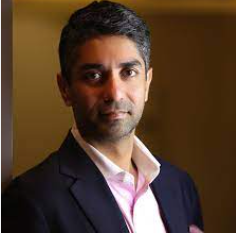Abhinav Bindra
Abhinav Bindra was born on 28 September 1982 in Dehradun, Uttarakhand to a Punjabi family. His parents, Apjit and Babli Bindra, are successful businesspeople who own an agro-food business in Punjab. Bindra grew up in Zirakpur, Punjab along with his sister Divya.
From a young age, Bindra developed a keen interest in shooting. At the age of 15, he became the youngest participant in the 1998 Commonwealth Games in Kuala Lumpur. He attended The Doon School in Dehradun and later graduated with a Bachelor of Business Administration degree from the University of Colorado Boulder in the USA.
Shooting Career
Bindra’s shooting career took off when he won a bronze in the 2001 Munich World Cup with a new junior world record score of 597/600. He won six gold medals at various international meets in 2001.
At the 2004 Athens Olympics, a fault in his rifle denied him a place in the finals. In 2006, he won gold at the ISSF World Shooting Championships with a score of 699.1, a world record.
The crowning glory of Bindra’s career came at the 2008 Beijing Olympics, where he shot a near perfect 10.8 on his last shot to win gold in the 10m Air Rifle event. With this, he became the first Indian individual gold medalist at the Olympic Games.
He narrowly missed out on a medal at the 2012 London Olympics, finishing 4th in the finals of the 10m Air Rifle. At the 2016 Rio Olympics, his last Olympics, the 33-year-old Bindra again came agonisingly close to another medal but lost in a shoot-off to finish 4th again.
Achievements and Awards
Bindra remains India’s only individual Olympic gold medalist. His other achievements include:
- Gold at the 2002 Commonwealth Games in Manchester
- Gold at the 2006 Commonwealth Games in Melbourne
- Gold at the 2010 Commonwealth Games in Delhi
- Gold at the 2014 Commonwealth Games in Glasgow
- 4 gold medals at the Asian Games (2006, 2010, 2014)
- 3 gold medals at the Asian Airgun Championships
- 5 gold medals at the South Asian Games
- Recipient of the Arjuna Award in 2000
- Recipient of the Rajiv Gandhi Khel Ratna award, India’s highest sports honour, in 2001
- Conferred with the Padma Bhushan, India’s third highest civilian award, in 2009
Training and Work Ethics
Bindra was known for his relentless training routines, attention to detail, and pursuit of perfection. He would train for hours in a shooting range built at his home in Zirakpur. Mental conditioning was a critical part of his training regimen.
He worked with a German sports psychologist and also used advanced equipment like laser simulators and electronic targets to hone his skills. Bindra employed a specialist personal coach, a physiotherapist and a fitness trainer to assist in his training. His training was funded and supported by his well-to-do parents.
Philanthropy and Retirement
Since retiring from professional shooting after the 2016 Olympics, Bindra has been involved in various philanthropic efforts. He has worked to improve the state of sports in India through the Abhinav Bindra Foundation, which aims to build a support system for talented young athletes.
He has mentored many young shooters and served as a goodwill ambassador for the 2018 Rio Paralympics. Bindra also provides financial aid for athletes to train abroad.
In 2017, he was appointed to the International Olympic Committee’s elite Athletes’ Commission. Bindra has authored an autobiography called “A Shot at History: My Obsessive Journey to Olympic Gold”.
Through his historic Olympic gold and pioneering accomplishments, Abhinav Bindra has inspired a generation of Indian youth to excel in sports. He remains one of India’s most celebrated sports icons.


